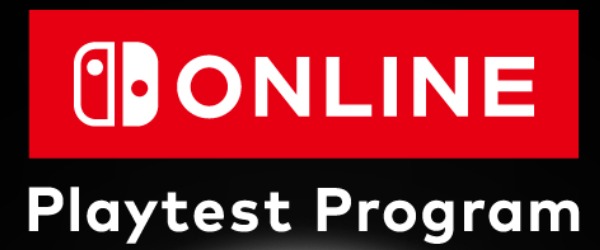
Virtual Reality Grew 30% in 2018, Driven by PSVR Sales - News
by William D'Angelo , posted on 04 May 2019 / 7,738 ViewsThe virtual reality market grew by 30 percent in 2018 to $3.6 billion, according to a report released by research firm SuperData.
PlayStation VR was the best-selling VR headset with 700,000 units sold in the fourth quarter alone, followed by 550,000 Oculus Go units, 160,000 Oculus Rift units, and 130,000 units HTC Vive units.

"2019 is poised to be an important year for VR with the introduction of the Oculus Quest," said Stephanie Llamas, Head of VR/AR at SuperData. "Device tethering to consoles and PCs has been an obstacle for consumer adoption, so a standalone headset like the Quest could be a real game changer. Likewise, the introduction of new headset technology like eye tracking in the HTC VIVE Pro Eye is likely to accelerate growth of enterprise usage."
Virtual reality revenue is expected to continue to grow to a projected $6.2 billion in 2019 and $9.6 billion in 2020.
A life-long and avid gamer, William D'Angelo was first introduced to VGChartz in 2007. After years of supporting the site, he was brought on in 2010 as a junior analyst, working his way up to lead analyst in 2012. He has expanded his involvement in the gaming community by producing content on his own YouTube channel and Twitch channel dedicated to gaming Let's Plays and tutorials. You can contact the author at wdangelo@vgchartz.com or on Twitter @TrunksWD.
More Articles
Slowly but surely. Keep interest in the technology, while it develops further and remains accessible. Sounds like a hard balance.
Played Rift for the first time the other day at a buddies place. Amazing experience overall (minus the minimal motion sickness after hours of playing). His rig is brand new and basically top of the line so that did help. It's unbelievable how realistic the 3D and graphics were. The hand controls were really good as well but still need work on the hardware and software side. The only thing stopping me now from getting a VR set is the resolution. It's still considerably worse than looking at the TV screen and is the biggest letdown in terms of the immersion. Once the screens start hitting an acceptable res, i'll be getting VR no doubt. The different types of games and experiences you can have with it are just way to cool.
Res is mostly due to the graphical performance of the HW not really the display (yes the display still needs to evolve a lot), but playing non-VR game on the VR with like a 300" screen 9ft away is quite incredible even if you can see each pixel.
Water cooled Ryzen 1700X, OC'd, 16GB DDR4, RTX 2070 8GB GDDR6 OC'd, etc. The HW couldn't get all that much stronger. The res on the 4k TV was native and was jaw dropping. It was the VR display screen that needs to be upgraded. It's not horrible or anything, it's just an obvious weak point. All of the games were fairly close to the same quality in the headset, minus a few titles. Once the display gets upgraded, which should also mean better hand controls by then as well, it'll definitely be worth a purchase, wireless or not.
Understood, certainly there is space from full HD to 4K or even 8K for VR headsets. Perhaps gen 2 will be 4k ready.
I think the new Vive or Oculus is quite close to it.
But don't forget you need like 120fps on 4K ultra, even what you gave would probably still hiccup a little on it.
True. It was running 4k/60 ultra without issue on the TV, but 4k/120 for VR would be pushing that system to the breakable limits. You could probably drop the detail to medium and get away with it, but that also would start to break the immersion. Hard to say which would be the better trade off. If you take into account that VR today is kinda like PS1 going into PS2, knowing what PS4 can do, VR has a ways to go and it's going to get A LOT better. If PS5 can push 1800p upscaled or higher, with 120 fps in VR it'll be one heck of an experience.
Yes, nextgen on PC have potential for both HW and headset to push 4k120fps on ultra at some point and that will be the time we enter the diminishing returns for VR, with 8k being next step to probably have pristine graphics.
Encouraging. Looking forward to proper second gen headsets.
I'm glad the rate of sales is going up but I wish the speed of sales would be a lot more faster by now. I'm not pessimistic though, cos VR headsets will sell for years into the future just like consoles do (PSVR will keep selling as long as there is a lot of people currently with PS4's). Plus this is just the first generation of VR (if you don't count the Virtual Boy). To sell more, I think there needs to be more VR-based games like Astro Bot. And types of games that can only be best-played in VR like Resident Evil 7. Also more more critically acclaimed AAA VR games in general for VR (Like Resident Evil 7 & Astro Bot). More open-world VR games would push sales too. . If GTA 6, Call of Duty 2019, elder scrolls 6 were all VR compatible from the start (with no post-game release VR update) then It would push VR a lot more. Also Minecraft needs PSVR support, it's good that the PC version has VR support though :)
Also marketing for PSVR and VR games is essential for higher sales figures.
So Sony is still dominating with much headroom Oculus Rift and Vive... but every other thread people want to pretend PSVR is doing bad.





















 Essay Pro
Essay Pro